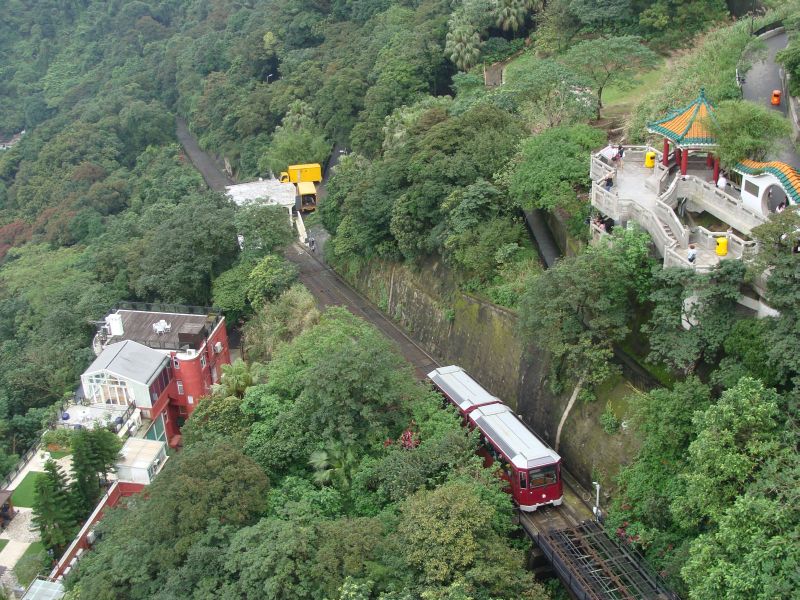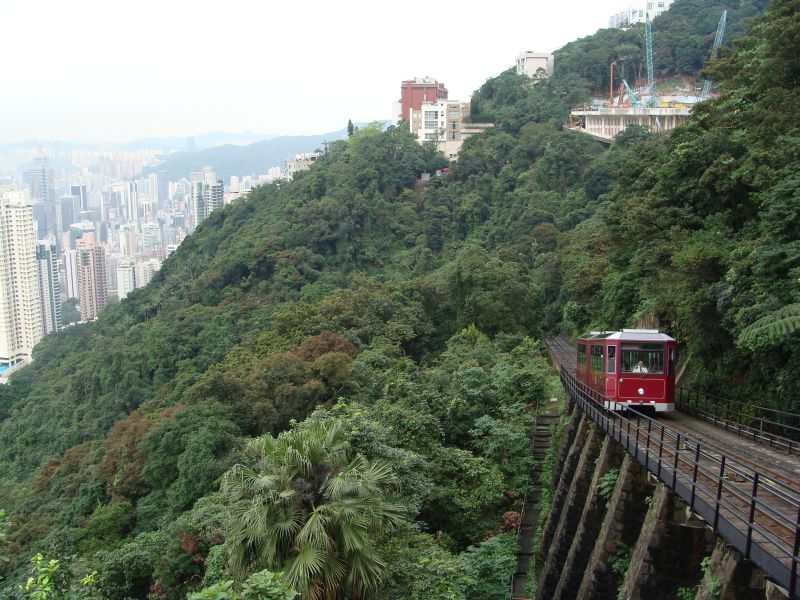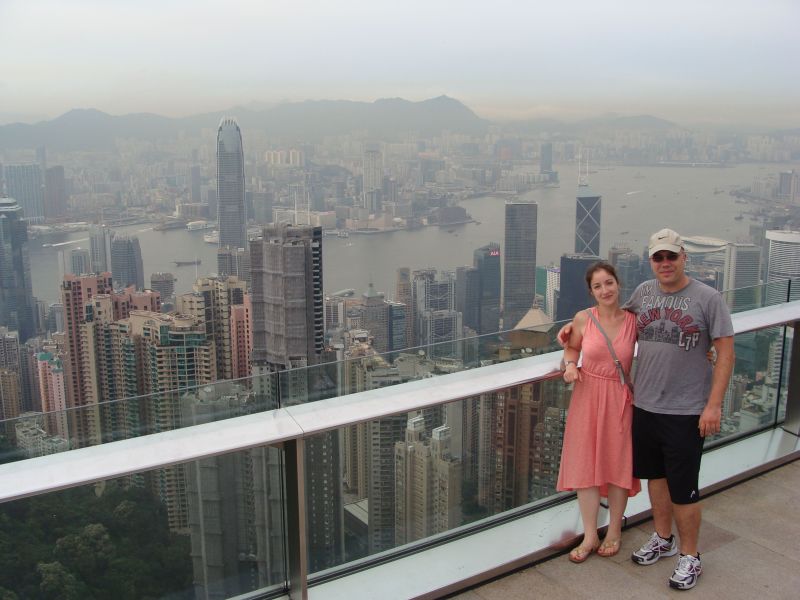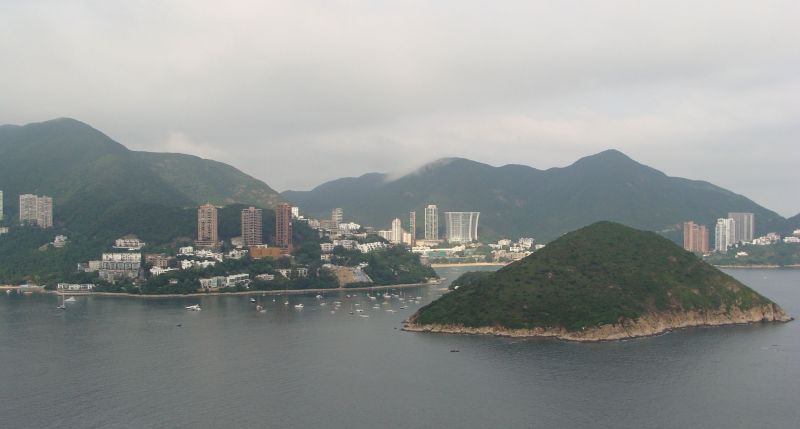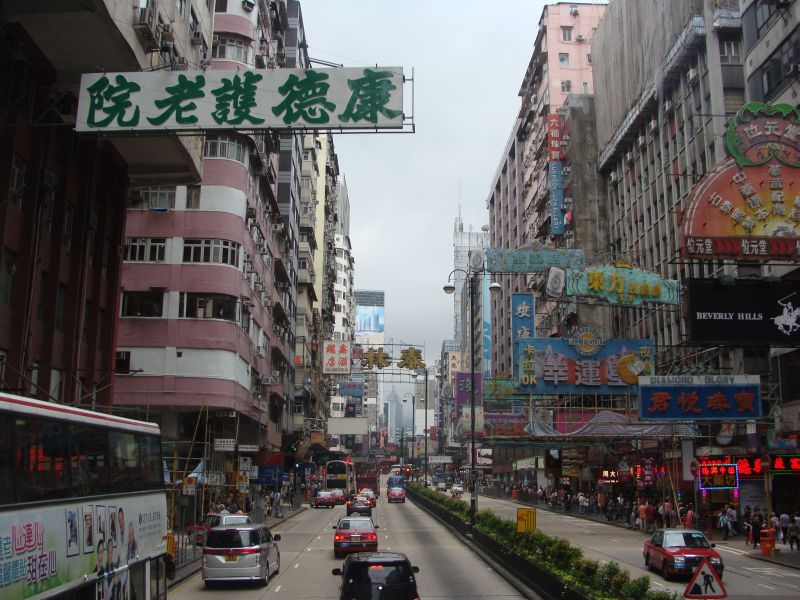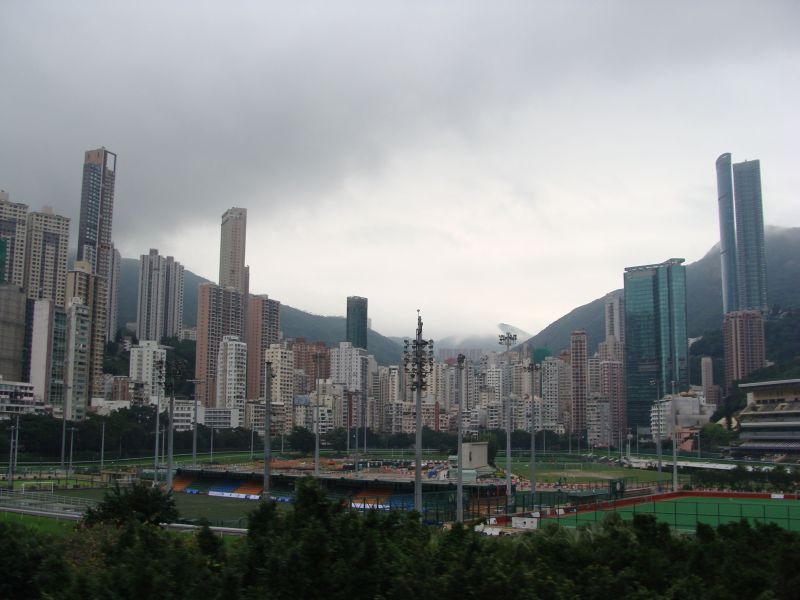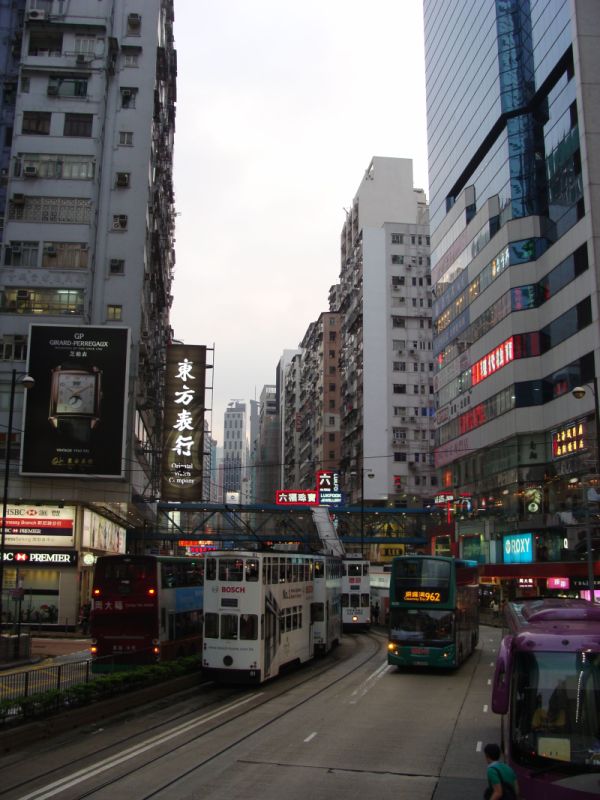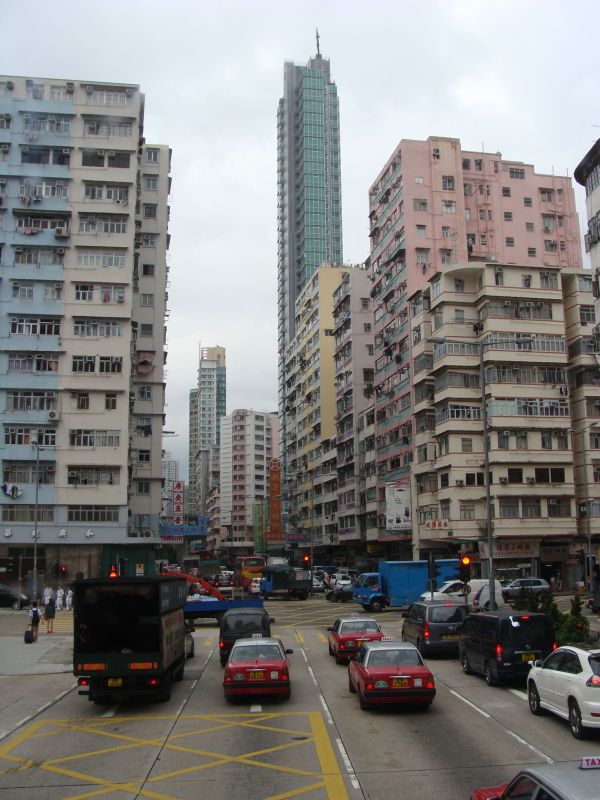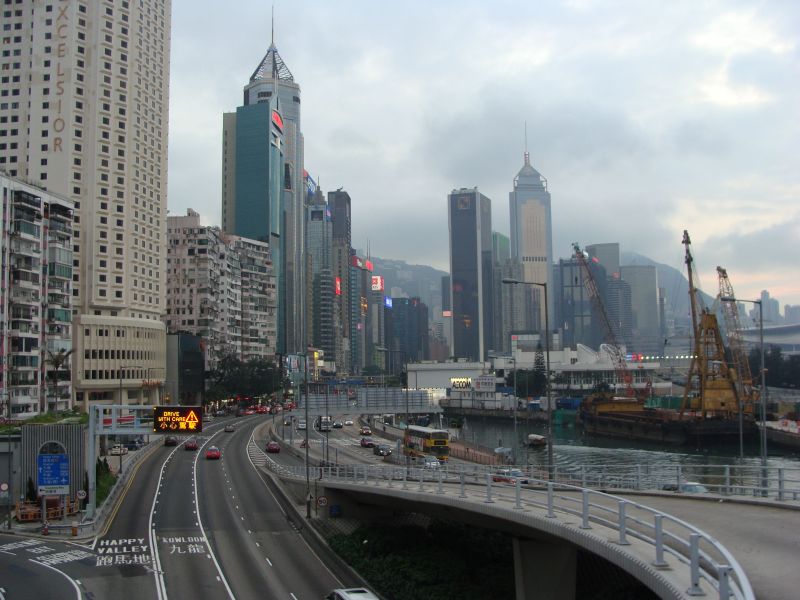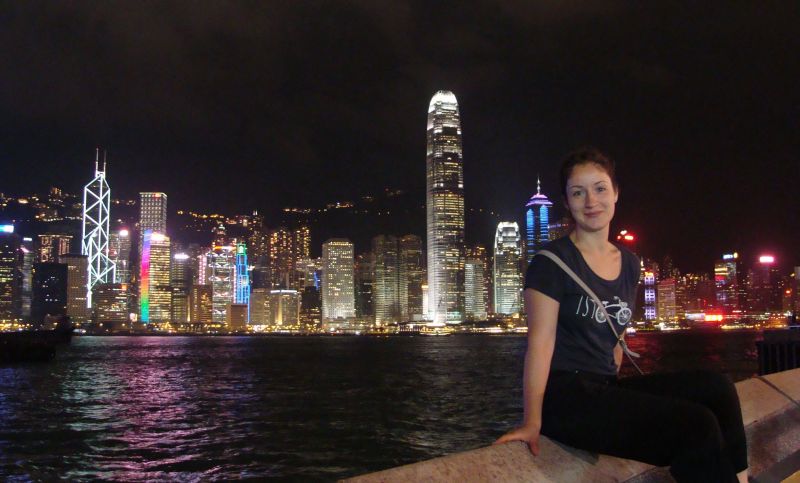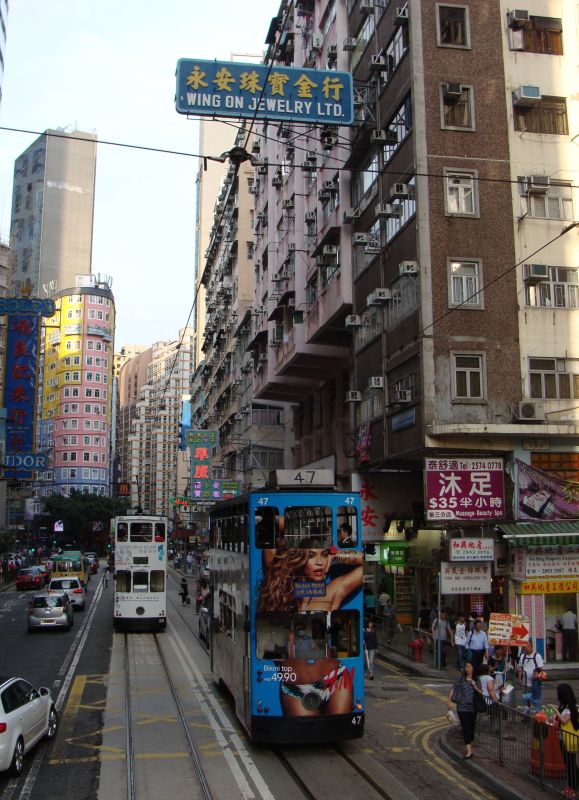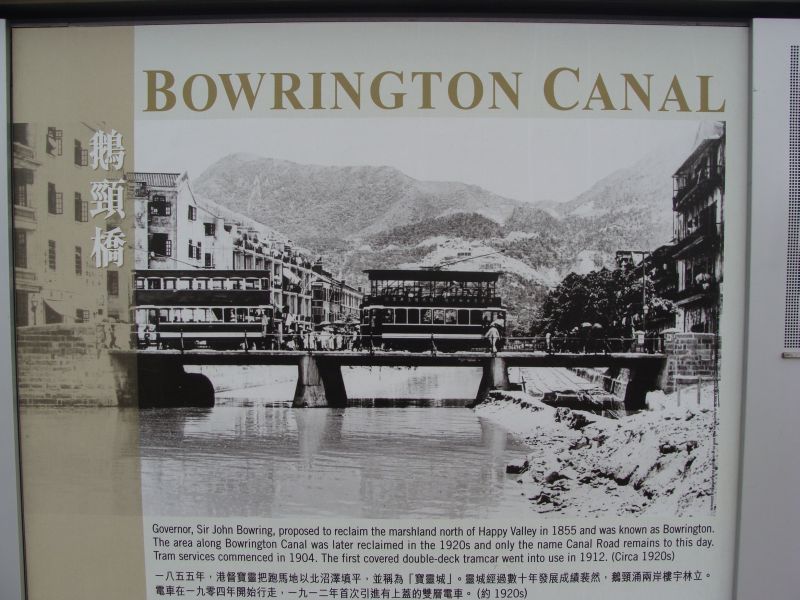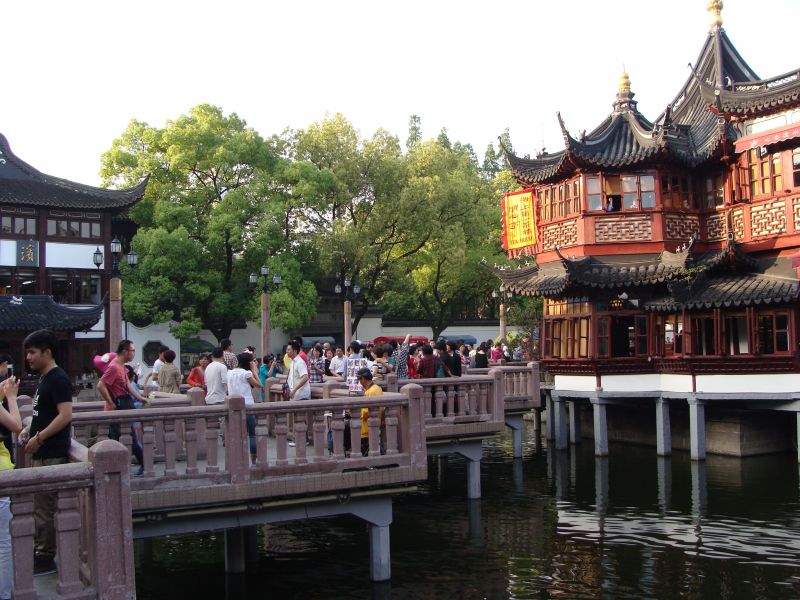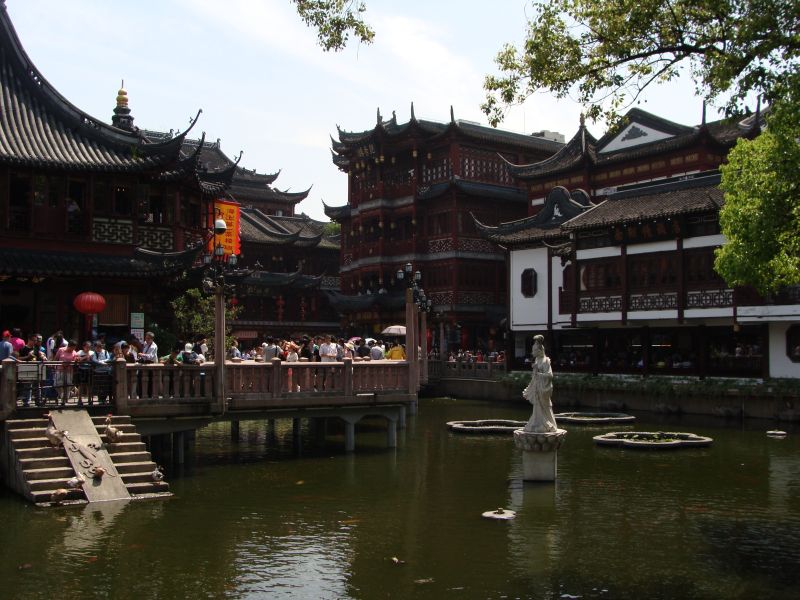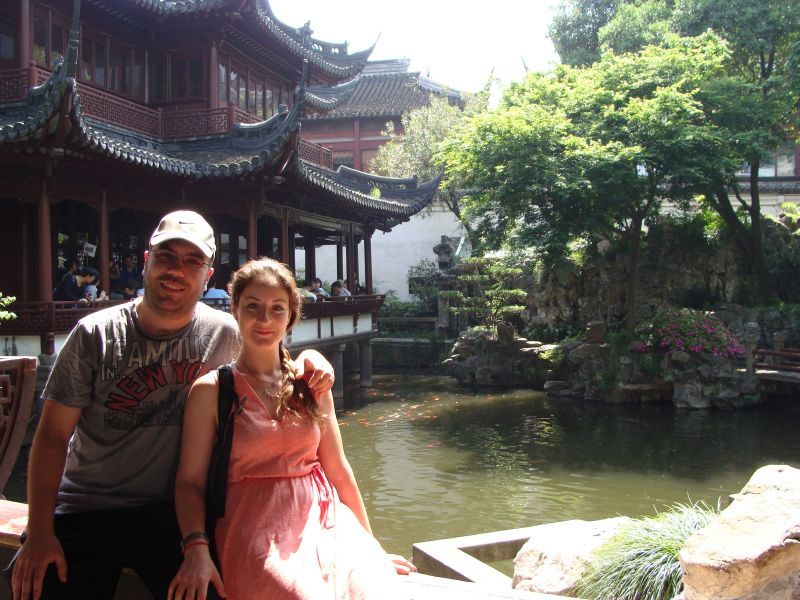Earlier transport methods up the Victoria Peak (such as humans or animals hauling cargo or passengers up the hill) proved unfeasible so in 1888 this funicular railway was inaugurated, opening the area for development. Today it is an important tourist attraction, allowing unobstructed and spectacular views of the surroundings.
Hong Kong
Xiamen (Fujian)
| The next stop was Xiamen, in the Fujian province. This is less known tourist destination, visited mainly by Chinese. We saw only 2 or 3 Westerners there. Many tours have certain Taiwnese islands as destination but we went only to the nearby Gulangyu Island, a former international settlement dominated by Western architecture. |
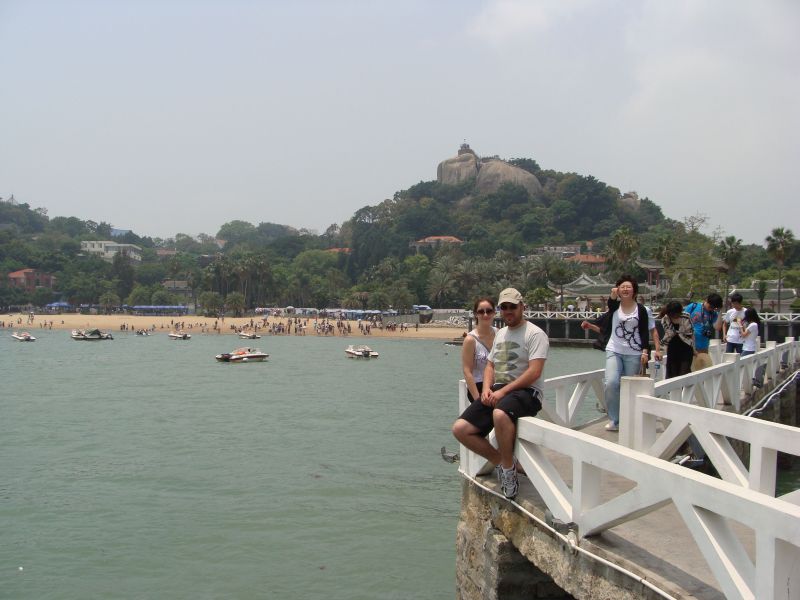 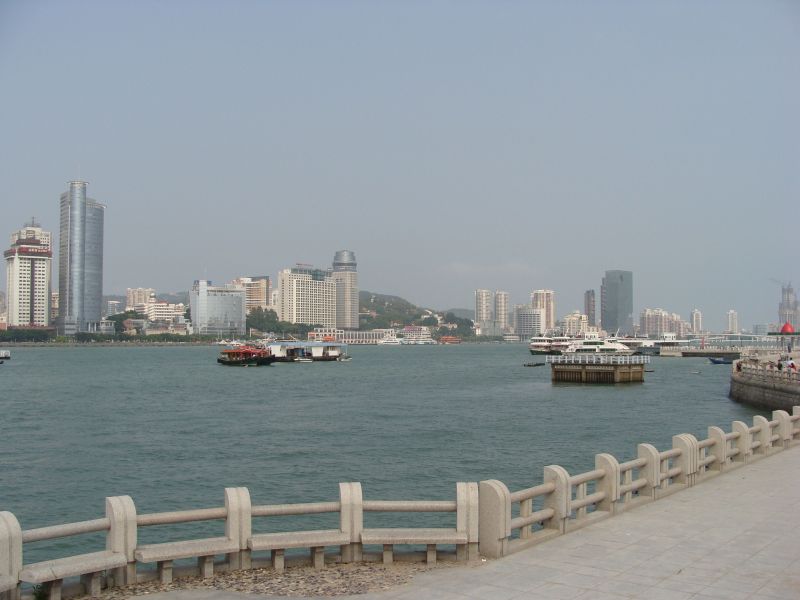 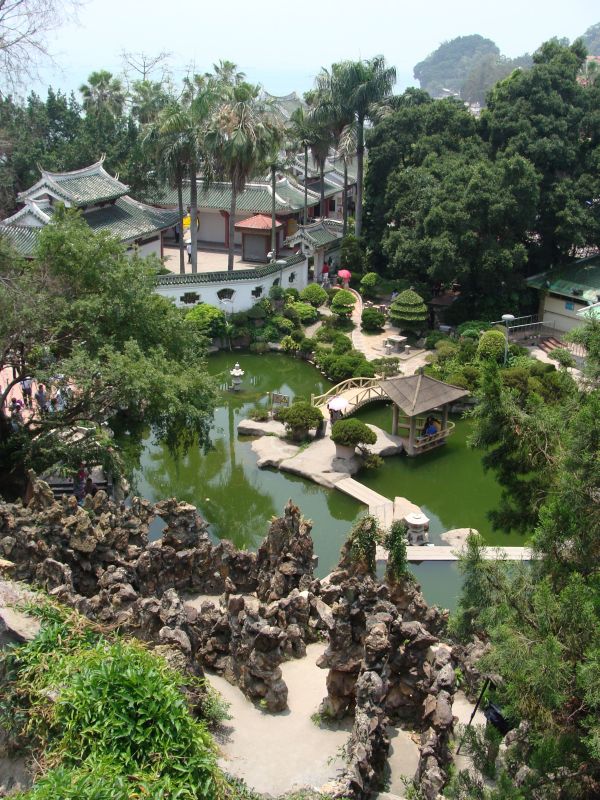 |
| All restaurants presented the ingredients in such fashion. |
 |
| Not all inhabitants are lucky enough to enjoy the tropical lanscape. |
 |
| The main reason of stopping in Xiamen was to visit some traditional mountain villages nearby. |
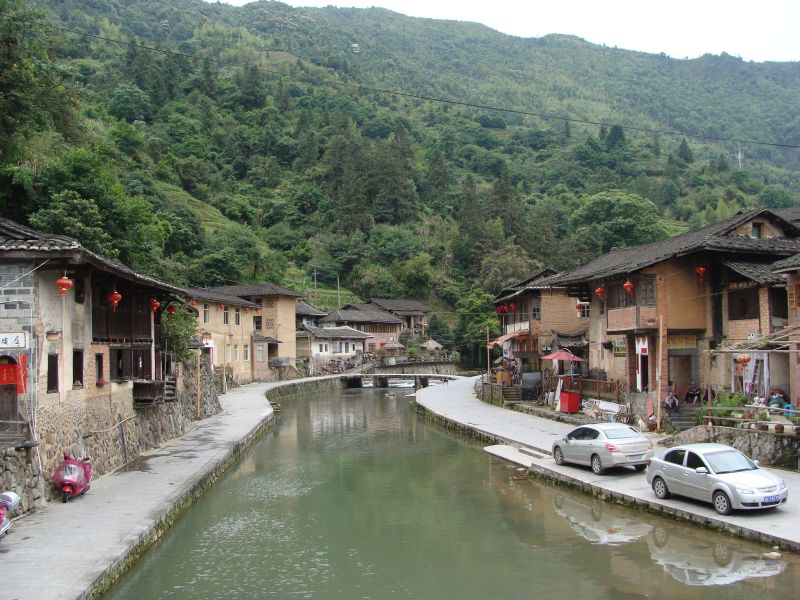 |
Such terraces we haven’t seen since North Vietnam, which was actually not too far.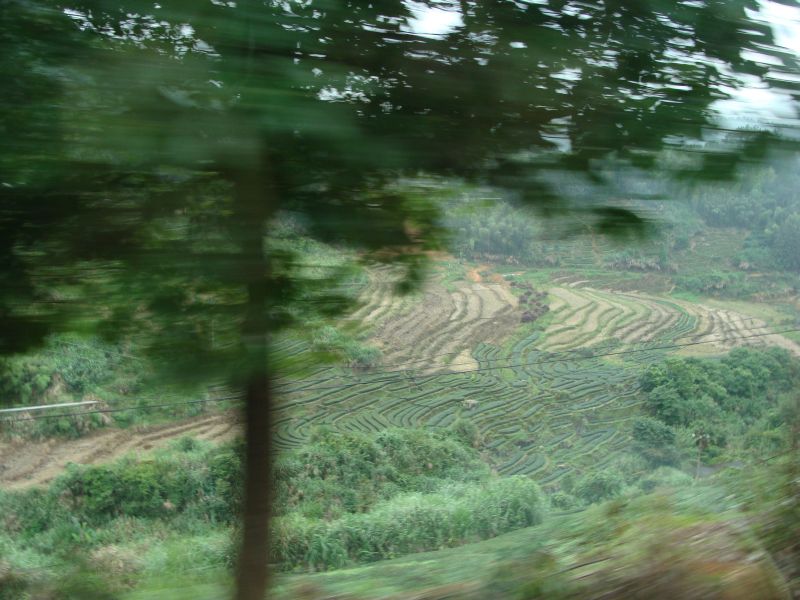 |
| The most interesting feature of this area are the Tulous, circular and fortified structures where communities of up to 80 families used to live before the arrival of apartment buildings. Quite an unusual sight, also listed as UNESCO world heritage site! |
 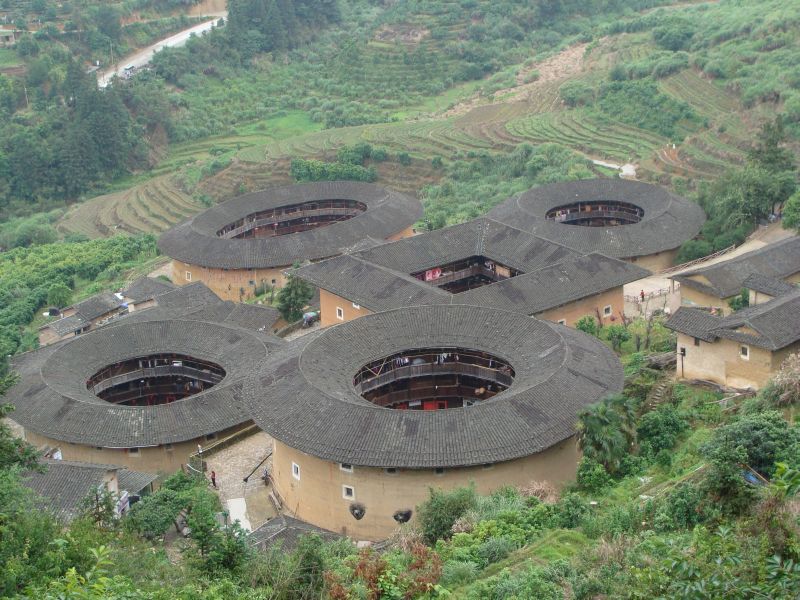 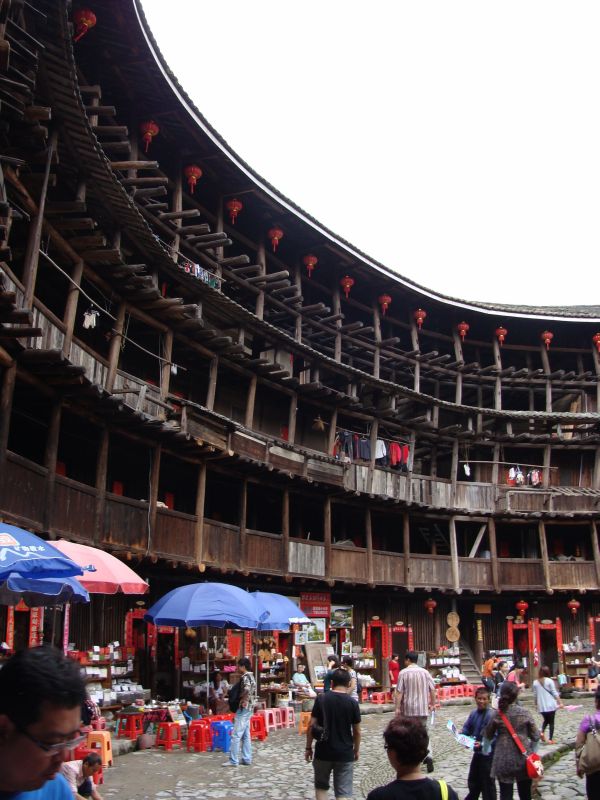 |
Museums: Postal and Communist Party
| A postal system existed in China, under various forms, beginning with year 1600BC. However, such systems were inconsistent and usually reserved for official use. Modern post arrived in China in 1861, when the British Post established in Shanghai a branch to service the businesses. Other Western post services followed suit, and soon the “Guest post” system was established. Since this was seen as a violation of sovereignty by China and an opportunity for illicit trade, by 1922 they were disbanded, after requests by the Beijing government. |
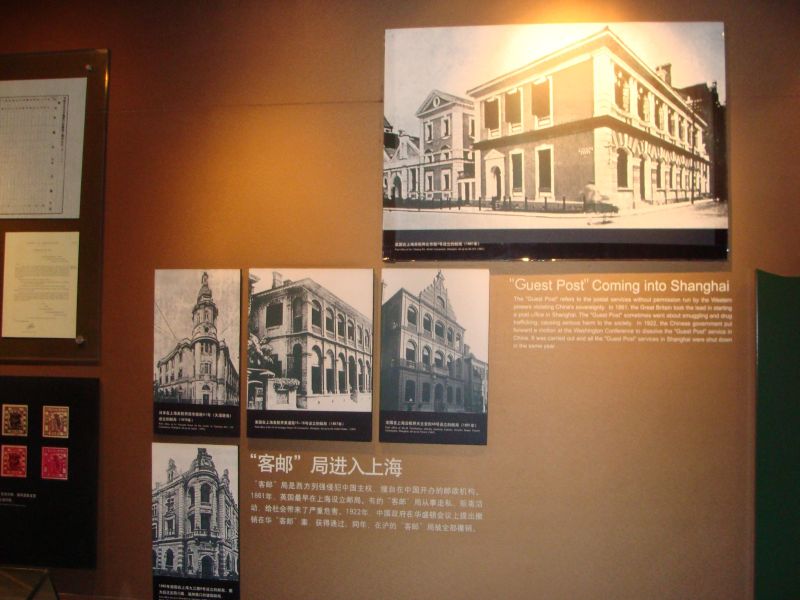 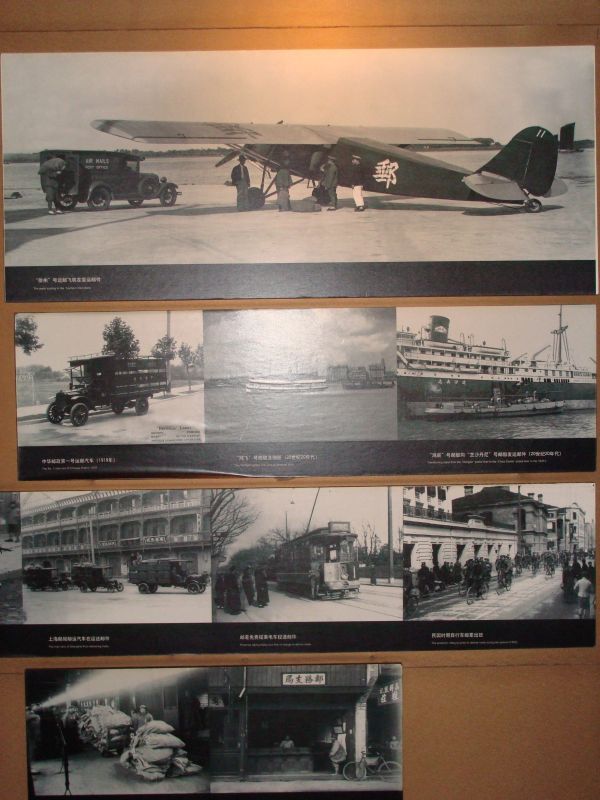   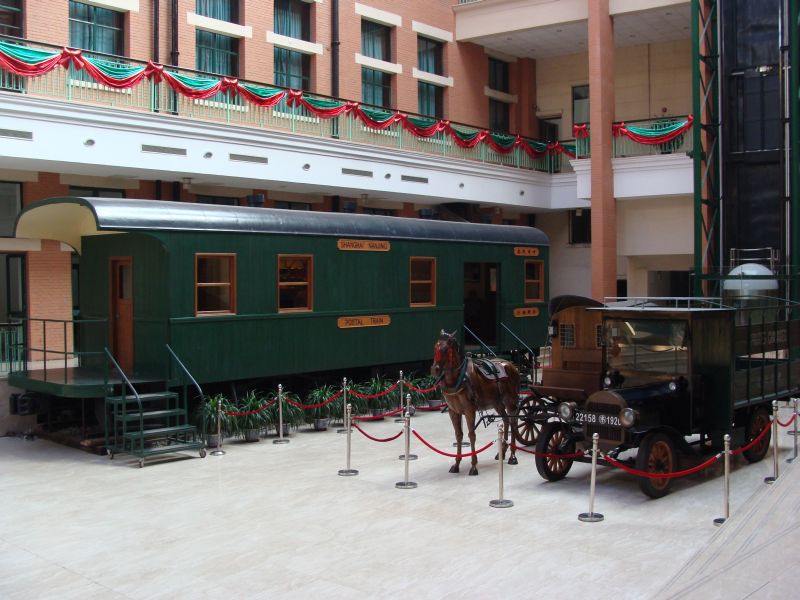 |
| Not too far is the site (today a museum) of the first conference of the Communist Party of China, held in the French Concession in July 1921. Being such a sacred place, photography was prohibited, but I was able to snap a picture of these children during an oath ceremony. |
 |
| Apparently unimpressed by Mao’s struggle, a group of teenagers are enjoyin modern technology just outside of the museum. |
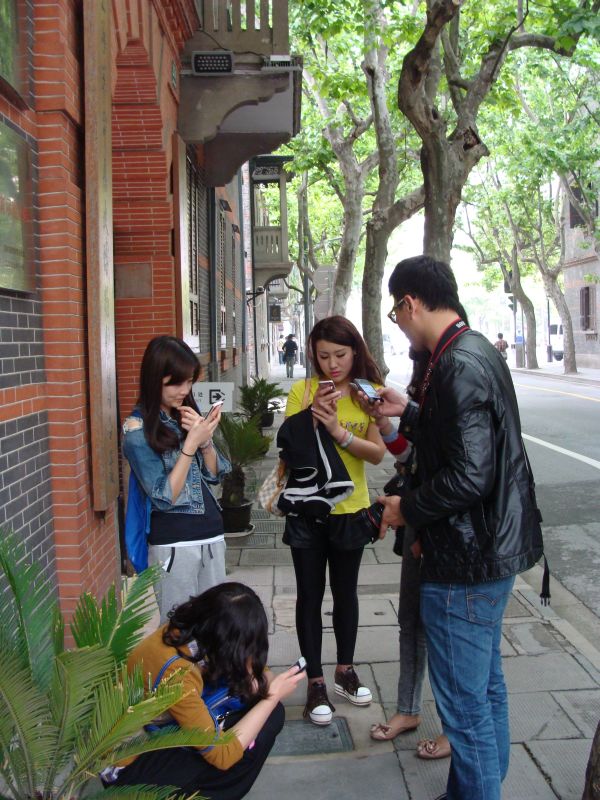 |
Chinese Shanghai
Given the history of this city as a international business center, most of it’s famous neighborhoods were shaped in a Western style. Even after the foreign concessions were discontinued, the modern trend continued. Probably, being built of wood, the old Chinese houses gradually fell to decay and were replaced with even more high rise structures. As a result, it is nearly impossible to find preserved traditional areas in Shanghai. Two notable exceptions are the Yuyuan Garden (and surroundings, first 3 pictures) and the area known as Tianzifang (last picture).

